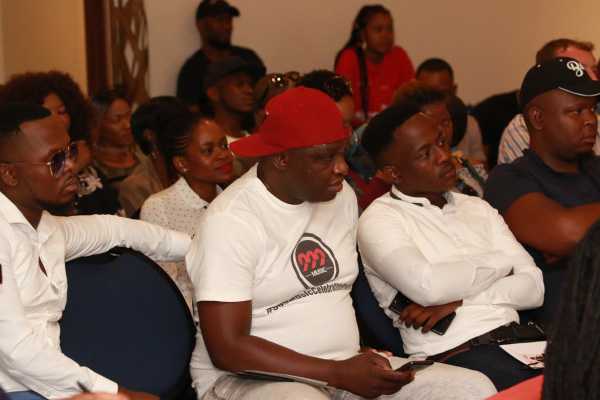Recording industry embraces new business strategies
Faced with the decline of hard copy music distribution, the likes of CDs and their predecessors, the music recording industry is compelled to shift their traditional way of doing business contracts into what they have dubbed 360 deals, entailing a more intimate relation between record labels and artists.
Oscar Bonginkosi Mdlongwa, popularly known as Oskido shared this information at the just ended YARONA FM Music Awards Artist Workshop held over the past week. Oskido was addressing a question from K Bos, born Kabelo Motlhatlhedi of HeartBeat Sounds who wanted to know how Oskido and his partners were managing to stay afloat amid a decline in physical sales. A 360 deal, according to Wikipedia, is a business relationship between an artist and a music industry company. The company, says Wikipedia, agrees to provide financial and other support for the artist including direct advances as well as backing in marketing, promotion, touring and other areas.
“In turn, the artist agrees to give the company a percentage of an increased number of their revenue streams, often including sales of recorded music, live performances, publishing and more.” The website points out that during the first decade of the 21st century, revenues from recorded music fell dramatically and the profit margins traditionally associated with the record industry disappeared. The 360 deal reflects the fact that much of a musician’s income now comes from sources other than recorded music, such as live performance and merchandise,” it says.
Elaborating further, Oskido highlights that the biggest chunk of money is now coming from performances, and that record labels want a share of that too. He says that as a company, they are doing almost everything for an artist including producing music video, marketing and more. And that the more the record gets popular, the music is downloaded online, and this translates into many bookings for an artist. “The new contracts are making up for the physical sales decline,” he says adding that they are getting close to 80% of their revenue from caller tunes.
“A song can have different revenue streams,” he explains. Speaking in an interview with this publication on Tuesday, Seabelo Modibe, the Coordinator of the Botswana International Music Conference explains that in the past, contracts only looked at sales only, but that today the business model has changed ten folds. He explains that the digital migration has changed the landscape. Quizzed on whether local artist have embraced or are any where closer to leaning towards this new model he said this was presently not the case. He also points out that while other artists outside the country have different streams of income, the same can’t be said about locals. Most, he says, are leaning heavily on government as a talent buyer.
“The industry is not thriving,” he says. He further says that this was a different scenario in South Africa where for example some of their top festivals are owned by artists such as Black Coffee and Shimza. “Artists must take responsibility for their careers instead of acting the role of arm chair critics,” he calls. For his part, Massie Hule of So Hype Records points out that his company has long embraced this business model. He notes that they started as far back as 2008/09.
He says that they split everything 50/50. “Today, an artist has different streams of income including merchandise, royalty, tours, and endorsement,” he explains. He also notes that they took this route amid the realisation that it is expensive to record an album.
“This is an incentive for record labels,”says Hule, noting the model is embraced by all parties involved.




